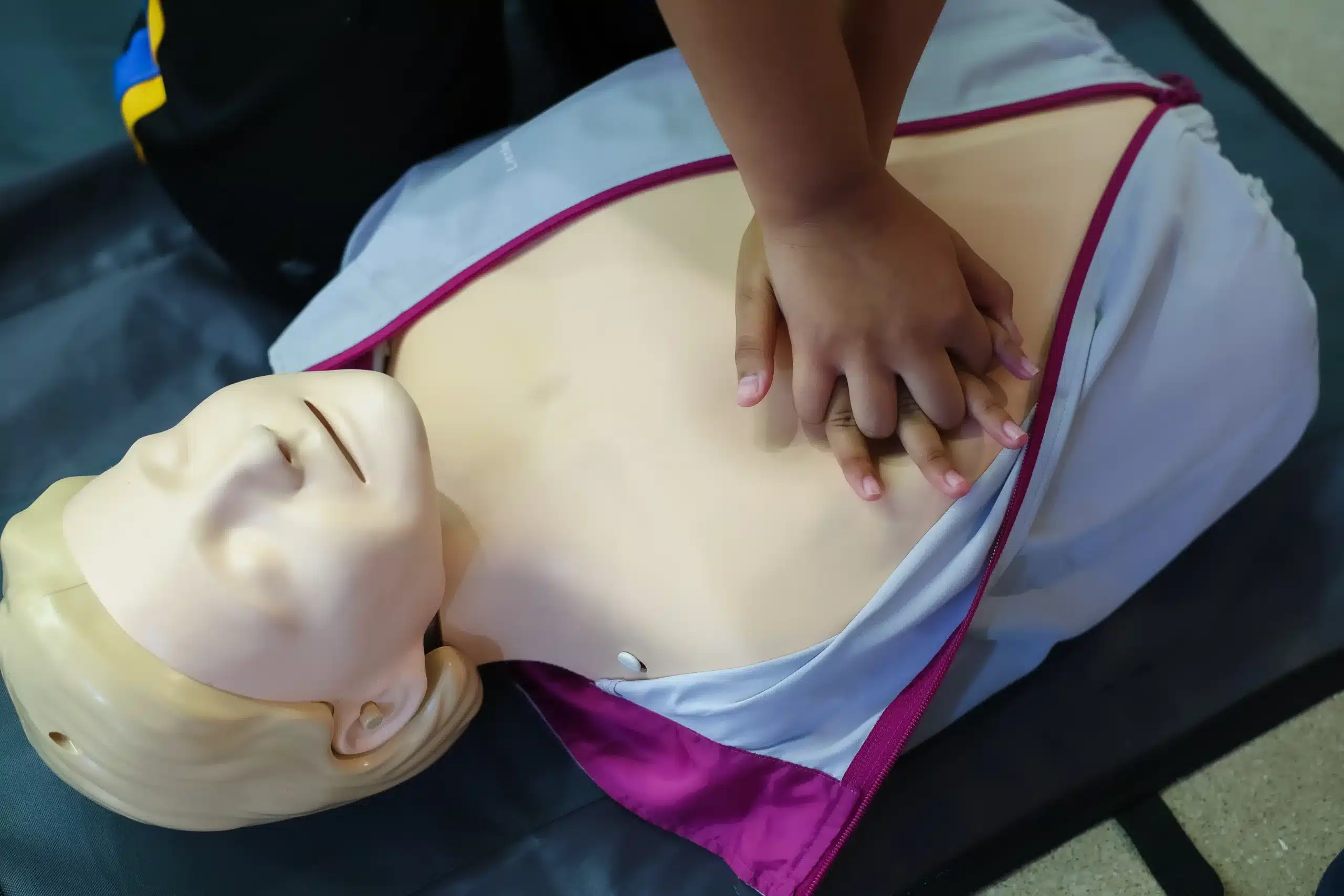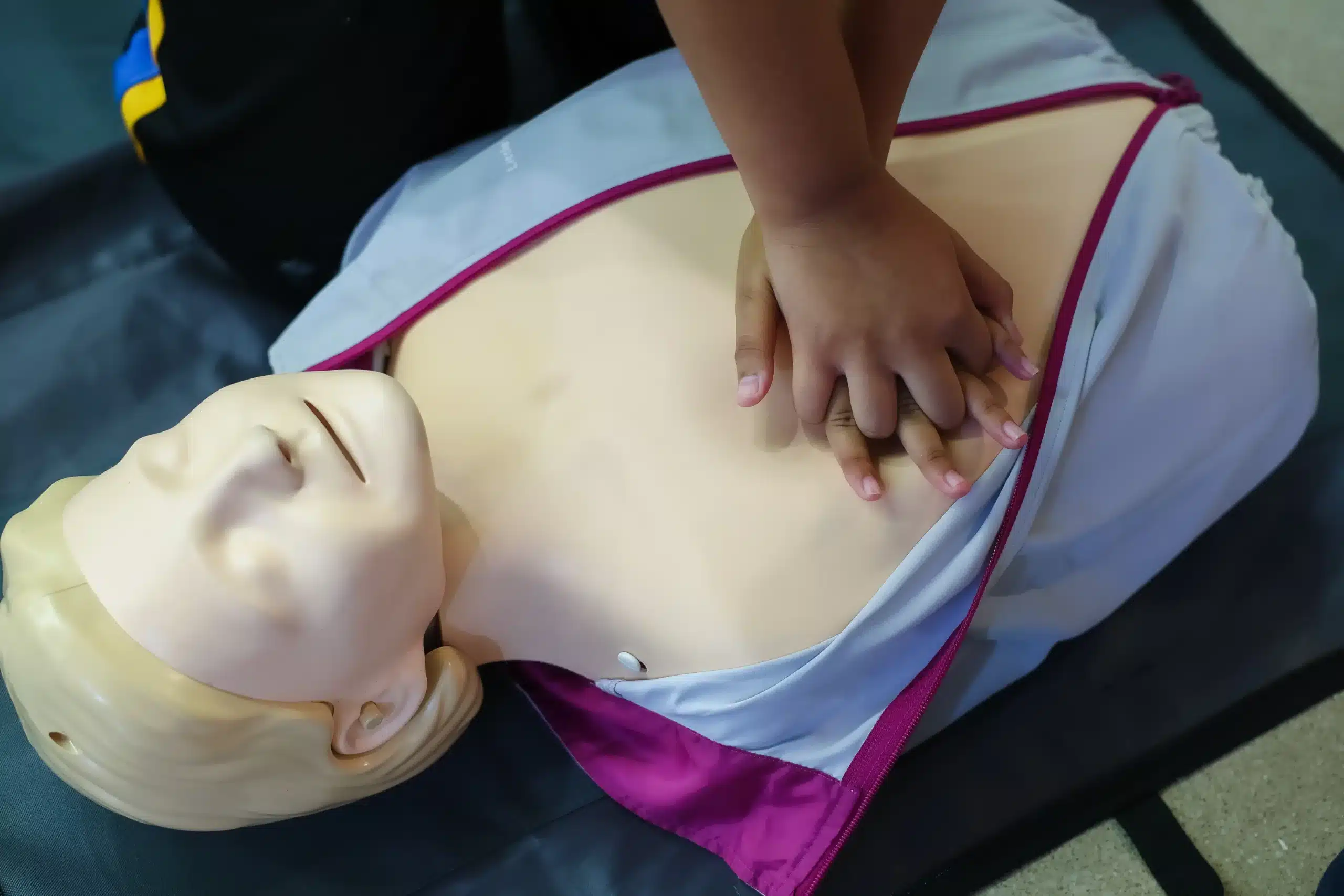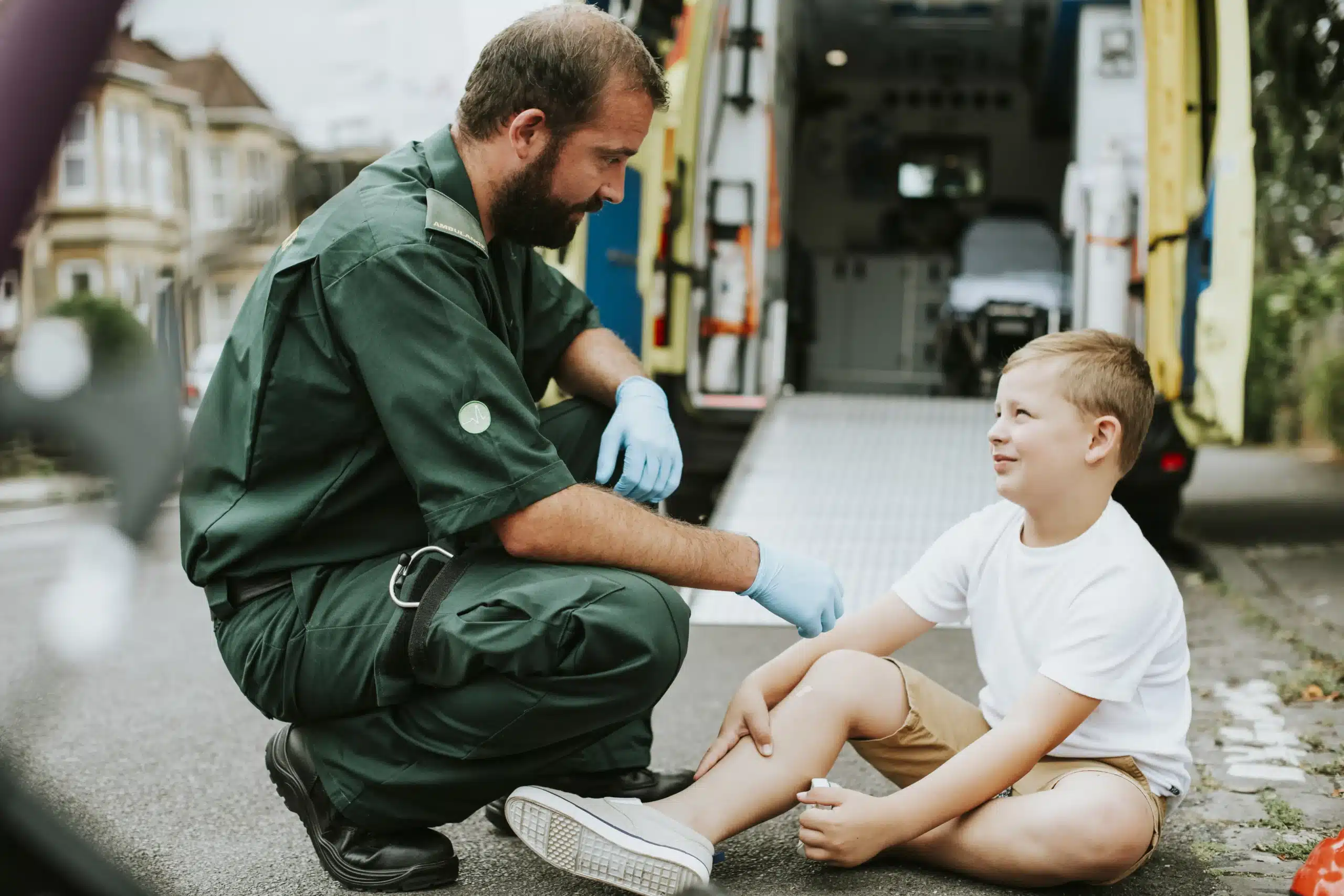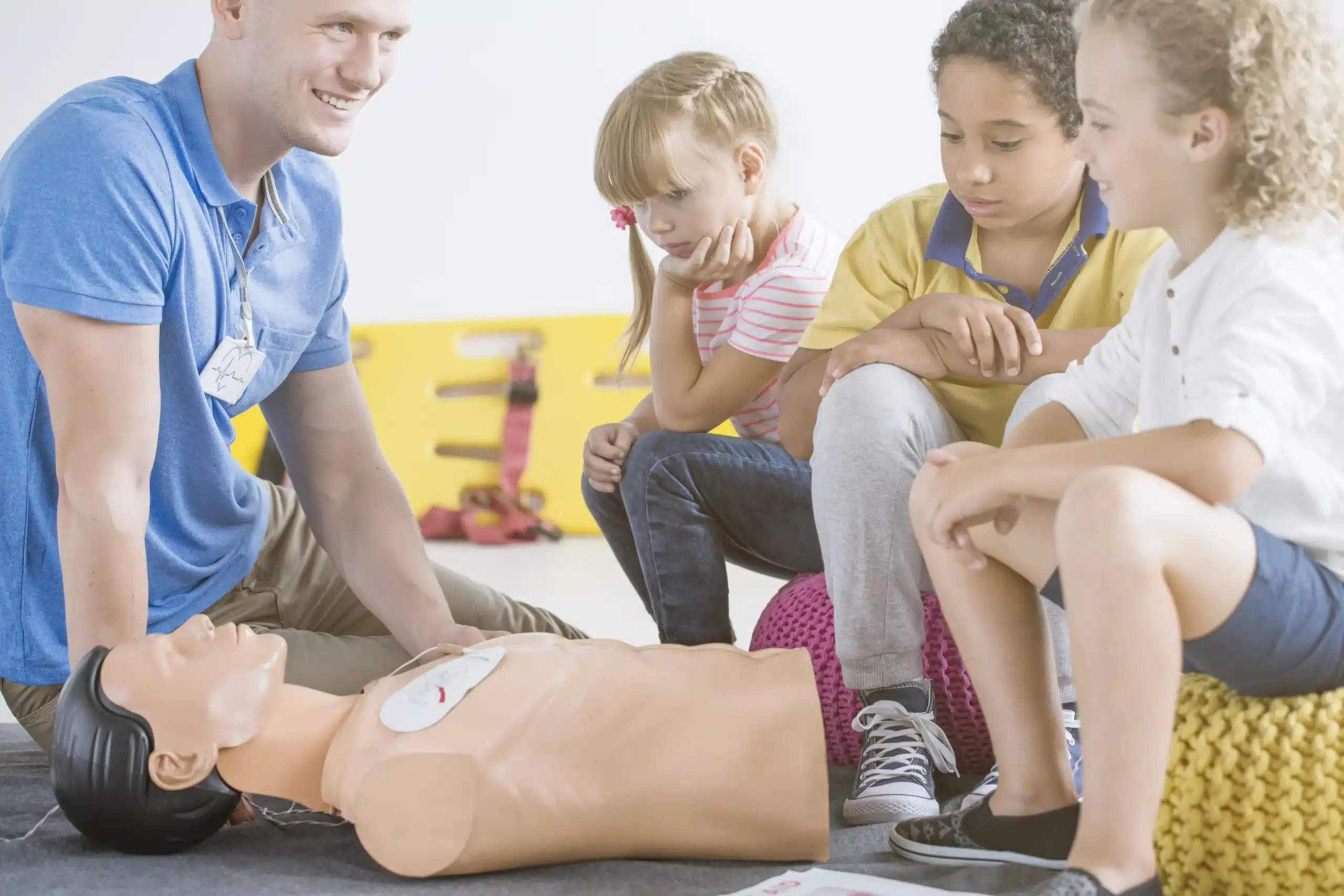Working in healthcare often means balancing demanding schedules with the need for ongoing training. Earning or renewing your Pediatric Advanced Life Support (PALS) certification is essential, but finding the time for traditional classroom courses can be difficult. HeartCode PALS offers a flexible alternative, combining online learning with a hands-on skills session. This blended learning format allows you to study at your own pace and then demonstrate your skills in person. This guide is your go-to resource for everything related to PALS Heartcode in Novato, from course requirements and time commitment to cost and registration. We’ll also explore the benefits of this blended learning approach and address common concerns about online certification.
Key Takeaways
- HeartCode PALS offers a flexible, blended learning experience: Combine online coursework with in-person skills practice to fit your schedule.
- PALS builds upon BLS skills to address pediatric emergencies: Gain specialized knowledge and techniques to confidently manage critical situations involving children.
- Maintain your PALS certification to ensure preparedness: Renew your certification every two years to stay up-to-date with the latest guidelines and best practices.
What is HeartCode PALS?
HeartCode PALS is the American Heart Association’s (AHA) blended learning program for Pediatric Advanced Life Support (PALS) certification. This format combines online coursework with a hands-on skills session, offering a flexible way for healthcare providers to learn. You move through the online portion at your own speed and then attend an in-person skills check to demonstrate what you’ve learned. Citywide CPR offers more details about this blended learning approach.
This course is designed for healthcare professionals who respond to pediatric emergencies, including respiratory and cardiovascular events. It covers essential information and techniques, giving providers the skills they need to handle critical situations involving children. The HeartCode PALS program uses an adaptive learning approach, meaning the content adjusts to your individual progress and self-reported confidence levels. This personalized path helps you focus on areas where you need more practice and efficiently master the PALS content.
How HeartCode PALS Courses Work
Online Learning
HeartCode PALS uses a personalized, adaptive system. The program adjusts to each student based on their answers and how confident they feel about the material. This method helps students focus where they need more practice and makes sure they’re efficiently building their Pediatric Advanced Life Support (PALS) skills. This online portion preps you for the hands-on skills session with an AHA PALS Instructor or simulation station. Learn more about the different PALS course options from the American Heart Association.
In-Person Skills Session
After you finish the online part of HeartCode PALS, you’ll attend a hands-on skills session with a certified AHA Instructor. This session focuses on practice, feedback, and testing. You’ll need to complete this in-person component within 60 days of finishing the online course to make sure you’re prepared for real-life situations. The hands-on portion includes practical exercises at different learning stations, which will help you solidify your understanding of PALS protocols. For more details on the combined online and in-person HeartCode PALS training, take a look at this helpful resource.
HeartCode PALS Requirements
Before you sign up for PALS HeartCode training, it’s helpful to understand the prerequisites. These requirements ensure you’re prepared to learn the advanced life-saving techniques covered in the course. Here’s what you’ll need:
Healthcare Provider Status
The PALS course is designed for healthcare providers who direct or participate in managing pediatric emergencies. This includes professionals like doctors, nurses, paramedics, respiratory therapists, and other healthcare personnel regularly involved in treating children. If you’re unsure whether your role qualifies, check with our team at Safety Training Seminars. We’re happy to clarify and guide you.
BLS Certification
A current Basic Life Support (BLS) certification is essential for taking HeartCode PALS. The course builds upon these fundamental skills, making a solid foundation in BLS crucial. You’ll be evaluated on your BLS proficiency for infants and children during the in-person skills session. Need a refresher? We offer American Heart Association BLS certification courses in Petaluma.
Pre-Course Self-Assessment
HeartCode PALS includes a pre-course self-assessment. This online evaluation helps you gauge your existing knowledge of ECG interpretation and pharmacology as they relate to pediatric care. It’s a valuable tool to identify areas where you might need to brush up before diving into the main coursework. This self-assessment is integrated into the HeartCode PALS program.
How Long Does HeartCode PALS Take?
Time is valuable, so you’re likely wondering what kind of time commitment is involved in getting your PALS certification through the HeartCode program. Let’s break it down:
Online Module Duration
The online portion of the HeartCode PALS course offers flexibility. You work through the modules at your own speed, pausing and resuming as needed. While the American Heart Association provides the curriculum, the actual time spent online depends on your existing knowledge and how quickly you grasp the concepts. Some students finish in a few focused sessions, while others prefer to spread it out over a longer period. For more details on PALS course options, the American Heart Association offers helpful resources.
Hands-On Skills Session Length
After completing the online modules, you’ll participate in a hands-on skills session with an AHA Instructor. This session typically takes about five hours, including short breaks. If you and your instructor decide to forgo breaks, you could complete the skills checkoff in closer to four hours and fifty minutes. The AHA provides further information on this process.
Total Time Investment
To become fully certified, you’ll need to complete both the online portion and the in-person skills session. This blended learning approach ensures you have a solid understanding of the material and can confidently apply your skills in real-world situations. Citywide CPR offers a helpful overview of the combined online and skills components of the HeartCode PALS program. Remember, the total time commitment will vary depending on your individual learning style and the pacing of your online study.
HeartCode PALS Cost in Novato
Course Fees
The HeartCode PALS course in Novato costs $290. This fee covers everything you need to get certified, including the online learning modules and the in-person skills test. Plan for about three to four hours to complete the online portion, and another 30–40 minutes for the skills session at our testing center.
What’s Included
This American Heart Association (AHA) Pediatric Advanced Life Support (PALS) certification prepares healthcare providers to respond to emergencies involving infants and children. The course covers essential skills for managing pediatric respiratory and cardiac events. You’ll work through the online portion on your own schedule and then come in for a hands-on skills session led by an AHA Instructor or, in some cases, practice with a voice-assisted manikin (VAM). The skills session also assesses your infant and child basic life support (BLS) skills and may include testing based on various case scenarios. For more details about what to expect, check out this helpful FAQ document from the AHA.
Register for HeartCode PALS in Novato
Training Center Details
If you’re a healthcare provider in Novato, California, and need PALS certification, you have several American Heart Association (AHA) authorized training centers to choose from. Safety Training Seminars, a woman-owned AHA Training Center, offers high-quality instruction in BLS, ACLS, PALS, CPR, and First-aid. Serving Novato, Petaluma, and Rohnert Park, they make accessing these essential certifications convenient for professionals in the North Bay.
Registration Steps
Ready to enhance your pediatric emergency care skills? Registering for a HeartCode PALS course is easy. Start with the online portion, HeartCode® PALS, to build a foundation before your hands-on skills session. To sign up for the complete blended learning course, call (800) 470-9026 or visit the Safety Training Seminars website for registration details and course schedules.
Why Choose HeartCode PALS?
HeartCode PALS offers a blended learning approach that combines online coursework with in-person skills practice. This format is ideal for busy professionals and those who prefer a more personalized learning experience. Let’s explore some key benefits:
Flexibility and Convenience
HeartCode PALS gives you the flexibility to learn at your own pace and on your own schedule. The online portion allows you to study whenever and wherever it’s convenient, accommodating busy schedules and eliminating the need to attend a full-day, in-person class. This blended learning style lets you review the material at your speed and then demonstrate your skills in person.
Personalized Learning
The HeartCode PALS online modules use an adaptive learning algorithm. This technology tailors the learning path based on your individual progress and self-assessed confidence levels. The program adjusts to your strengths and weaknesses, ensuring you focus on the areas where you need the most practice.
Expert Instruction and Hands-On Practice
While the online portion offers flexibility and personalized learning, HeartCode PALS still emphasizes hands-on training. After completing the online modules, you’ll attend an in-person skills session led by a certified instructor. This session provides focused skills practice, debriefing, and skills testing, ensuring you can apply your knowledge in real-world scenarios. The AHA confirms this in-person component follows the online portion.
Skills You Gain from HeartCode PALS
HeartCode PALS equips healthcare providers with essential skills to confidently manage pediatric emergencies. This blended learning course combines online instruction with hands-on practice for a comprehensive learning experience. Here’s what you’ll learn:
Pediatric BLS and Airway Management
This course reinforces pediatric Basic Life Support (BLS) fundamentals, covering child and infant CPR. You’ll gain proficiency in airway management techniques, ensuring you can effectively open and maintain a child’s airway during a respiratory emergency. The hands-on portion includes learning stations focused on key skills, including respiratory management. You can review the course details from the American Heart Association.
Respiratory Emergency Recognition and Intervention
PALS training emphasizes early recognition and intervention in pediatric respiratory emergencies. You’ll learn to identify the signs and symptoms of respiratory distress and take appropriate action. The PALS course focuses on improving outcomes for young patients by preparing providers to handle these critical situations.
High-Performance Team Dynamics
HeartCode PALS goes beyond individual skills, focusing on teamwork during pediatric emergencies. The course uses interactive scenarios and simulations to develop your ability to work effectively within a resuscitation team. This includes clear communication, role assignment, and coordinated efforts to provide the best possible care. The adaptive learning technology in HeartCode PALS personalizes the learning path based on your performance and confidence level.
Shock and Cardiopulmonary Arrest Management
Managing shock and cardiopulmonary arrest in children requires specialized knowledge. HeartCode PALS provides comprehensive training in these areas, covering the latest guidelines from the American Heart Association. You’ll learn to recognize different types of shock, implement appropriate treatment strategies, and manage cardiac arrest. Course topics include CPR, respiratory emergencies, rhythm disturbances, vascular access, and resuscitation team concepts.
HeartCode PALS: Myths vs. Facts
HeartCode vs. Traditional PALS
One common misconception is that PALS certification is the same as basic life support (BLS). While both are crucial for healthcare providers, PALS offers a specialized focus on pediatric emergencies not covered in standard CPR training. Think of BLS as the foundation, with PALS as the specialized structure built on top of it. PALS dives into the specific physiological differences between children and adults, equipping you with the skills to handle pediatric emergencies effectively. Another myth is that experienced healthcare providers don’t need PALS certification. Even seasoned professionals benefit from the targeted training and updated guidelines provided in a PALS course, ensuring they’re always prepared. HeartCode PALS blends online learning with hands-on practice. This flexible format lets you learn the material at your own pace and then demonstrate your skills in person at our Petaluma training center.
Addressing Online Learning Concerns
Many people believe online PALS certification courses aren’t as valid as in-person courses. This isn’t true. The American Heart Association’s HeartCode PALS program combines online coursework with a required hands-on skills session. This approach ensures you receive comprehensive training, covering both theoretical knowledge and practical application. You’ll learn through interactive modules, simulations, and case studies, then solidify your skills during an in-person session with our certified instructors. This blended approach offers the convenience of online learning and the crucial hands-on experience needed to confidently respond to pediatric emergencies. Our Petaluma location offers these hands-on sessions for residents of Petaluma, Rohnert Park, and Novato.
Renew Your HeartCode PALS Certification
Keeping your PALS skills sharp is crucial for providing the best possible care. This section covers everything you need to know about renewing your HeartCode PALS certification.
Renewal Requirements
PALS certification is valid for two years. To maintain your credentials and stay current with the latest pediatric advanced life support guidelines, you’ll need to renew your certification before it expires. This ensures you’re always prepared to handle pediatric emergencies.
Continuing Education Opportunities
Renewing your HeartCode PALS offers valuable continuing education opportunities. The course provides continuing education credit, which can be helpful for maintaining other professional licenses or certifications. The renewal process typically involves completing online modules, followed by an in-person skills check and test. This blended learning approach combines the convenience of online learning with essential hands-on practice.
Related Articles
- HeartCode PALS Rohnert Park: A Certification Guide
- PALS Certification in Petaluma: Your Complete Guide – Petaluma CPR Classes
Frequently Asked Questions
What exactly does PALS cover that basic CPR doesn’t?
PALS builds upon the foundational skills learned in basic CPR and delves into the specific physiological differences between children and adults. It provides advanced life support techniques tailored to pediatric emergencies, such as respiratory distress, shock, and cardiac arrest. It also emphasizes high-performance team dynamics and communication during pediatric emergencies.
If I’m already a healthcare professional with years of experience, do I really need PALS certification?
Even seasoned healthcare professionals benefit from PALS certification. Guidelines and best practices for pediatric emergency care are constantly evolving. PALS courses ensure you stay up-to-date with the latest recommendations from the American Heart Association, ultimately improving patient outcomes. It also reinforces essential skills and enhances your ability to work effectively within a resuscitation team.
Is online PALS certification as good as in-person training?
Yes, the HeartCode PALS program combines the flexibility of online learning with the essential hands-on practice required for certification. You’ll complete interactive online modules and then attend an in-person skills session with a certified instructor to demonstrate your proficiency. This blended approach ensures you receive comprehensive training and can confidently apply your skills in real-world situations.
How long does it take to complete the HeartCode PALS program and get certified?
The online portion is self-paced, allowing you to complete the modules at your convenience. While the time varies depending on individual learning styles, many students finish within a few focused sessions. The in-person skills session typically takes a few hours. Combined, you can achieve certification efficiently while balancing other commitments.
How often do I need to renew my PALS certification?
PALS certification is valid for two years. To maintain your credentials and stay current with the latest guidelines, you’ll need to renew your certification before it expires. The renewal process typically involves completing updated online modules and an in-person skills check.






